It was Christmas Day dinner 1983 in my apartment in Elmhurst,
Queens. Among those at the table were my
friends Jon, Greg, Edwin McArthur and his wife, Peggy. The dinner conversation flowed between
multiple subjects including church music of the season, politics and the
weather. Once those subjects faded into
eating the main course and dessert, Edwin began to hold court with his reminiscences
of his colorful, storied and many years in the classical music world. We peppered Edwin with questions about famous opera singers of his long career. He knew all of them, had worked with them and had very strong opinions about each and everyone of them.
It was either 1981 or 1982 when my friend Jon introduced me to
Edwin. He insisted that we would hit it
off and I would enjoy hearing Edwin’s stories.
Jon was right.
Edwin arrived in New York City in the late 1920s. He was the son of a Colorado minister. His pianistic talents were many as he played
for famous singers of the era including Ezio Pinza, John Charles Thomas and
many others. Over his years living in New York City he was not only
an accompanist but also a coach,
conductor and church organist.
He was called to audition as accompanist for Florence Foster
Jenkins. She hired him but he was fired
when she caught him making faces at the
audience while she was singing. Edwin
did not have an opinion, whether complimentary or not, that was not expressed!
He also auditioned for the great Swedish soprano Kirsten Flagstad. As he told the story, he was called to her
apartment where she sang and he played.
Several arias and songs later, Edwin left not knowing what the great
soprano thought of him. A few days went by and
not having heard from her, Edwin called
her to inquire as to her decision. Her
response was, “Oh, yes, you are my accompanist.
I thought I made that clear when you were here.” And, so for many years thereafter, Edwin
accompanied the great Kirsten Flagstad across our country and around the world for
her recital tours. Edwin played all of
Miss Flagstad’s concerts by memory. He
also conducted Miss Flagstad and Lauritz Melchior in performances of “Tristan
und Isolde” at the Metropolitan Opera.
He was the first American born conductor to conduct at the Metropolitan
Opera.
Edwin wrote the book, ''Flagstad: A Personal Memoir,'' which
tells the story of his long friendship with the soprano. He gifted me an autographed copy. Touched was I.
Edwin married the love of his life, Peggy, whose real name was Blanche,
in 1930. She was a sweet woman who
easily moved through all of Edwin’s artists of great stature. Yet, Peggy knew when to stand her ground and
tell Edwin to stop telling his stories.
I had the pleasure of working with Edwin two or three times. On one occasion we met before a church
service to rehearse. Edwin asked me what
I was planning to sing. The man could
sight read anything without a mistake. I
responded, “The Malotte’s “Our Father.”
Here’s the music.” His response,
“I don’t’ need the music. What key are
you singing this in? I played the first performance of this piece with John
Charles Thomas. I know it.” Edwin
proceeded to play the “Our Father” without music and in the key I was singing
it in. We got along famously.

On another occasion after a “gig” where Edwin was conducting, he
offered me a ride home and of course, I accepted. Our conversation flowed about the “gig” we
had just done, what was playing at the Met Opera and then all of a sudden Edwin
said, “Fifty years ago tonight I was at a party on the Upper East Side with
Lauritz Melchior. Lauritz could hold his
liquor.” On he went about the details of
the apartment where the party was, what time they arrived and left and
more. Edwin’s memory was beyond
remarkable. I was in awe.
So why all these remembrances of my friendship with Edwin and Peggy
McArthur?
The answer to that question
must obviously be “Gena Branscombe.”
Recently I was researching the Branscombe Choral scrapbooks held at the
New York Public Library for the Performing Arts. As I opened the first scrapbook to find the
Branscombe Choral’s first concert program dated December 23, 1934, there was
Edwin McArthur’s name as organist and pianist for the concert. Edwin held the organist position at the
Broadway Tabernacle Church where the concert was held. (Remember as a freelance musician one takes
on many jobs to pay the bills.) I was
stunned.
Edwin knew and had worked with Gena Branscombe. I met Edwin many years before I began my Gena Branscombe
Project . I never had the opportunity to
talk to him about her and listen to what
I am sure would be a colorful story about their professional relationship. Also, among those scrapbook pages was a telegram from Edwin and Peggy apologizing for not attending a recent
concert.
In Gena’s letters to her publisher Arthur Schmidt, she mentions
wanting to call Edwin. Ever the
self-promoter and the way to get to Kirsten Flagstad to perform her songs on
her recitals was through Edwin! And,
indeed Kirsten performed one of Gena’s arrangements of a Swedish folk song on
the radio!
Several weeks before Edwin died we had a phone conversation. I invited he and Peggy to dinner and to meet
my husband, Dan. We agreed we would talk
in a few weeks to set a date. Sadly,
Edwin died February 24, 1987. He died
seconds after having played the art song “Si mes vers avaient des ailes”..”If
my verses had wings.” The singer with
whom he had been working turned to get his calendar to schedule his next coaching session and when he looked back to talk to Edwin, he was peacefully
sitting in the chair at the piano having played his final performance. A life filled with joyous music making to the
very last second.
Edwin was a force of nature with humor, serious musical opinions, an
incredible memory, talent emanating from his very being and a caring, loving
person.
One thing that stymied me over the years I knew Edwin was that he could
recount days, years, meetings, events, where he had been, what he had eaten,
who was with him and much more…..well, Edwin NEVER in all the years I knew him
pronounced my last name correctly.
Edwin, it was an honor to know you and I hope you and Gena are having a
great conversation while I type this blog entry.
#BringingBackBranscombe









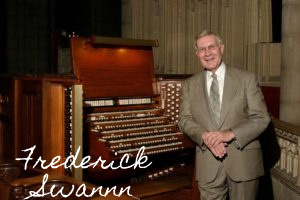



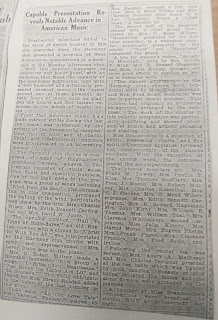





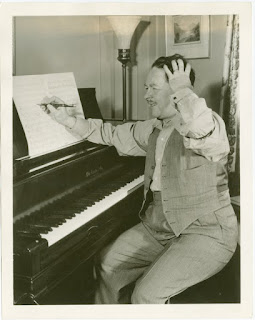

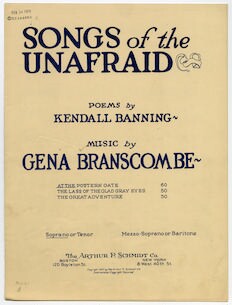

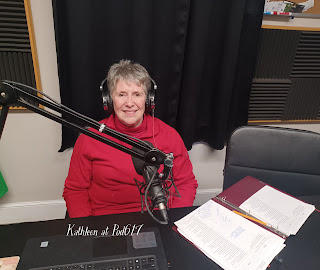
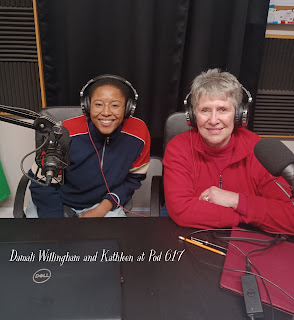



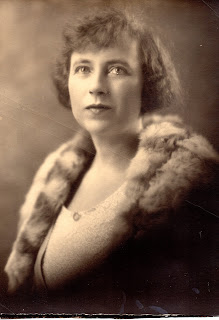






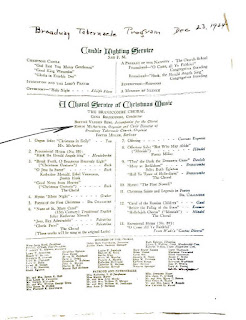


.jpeg)